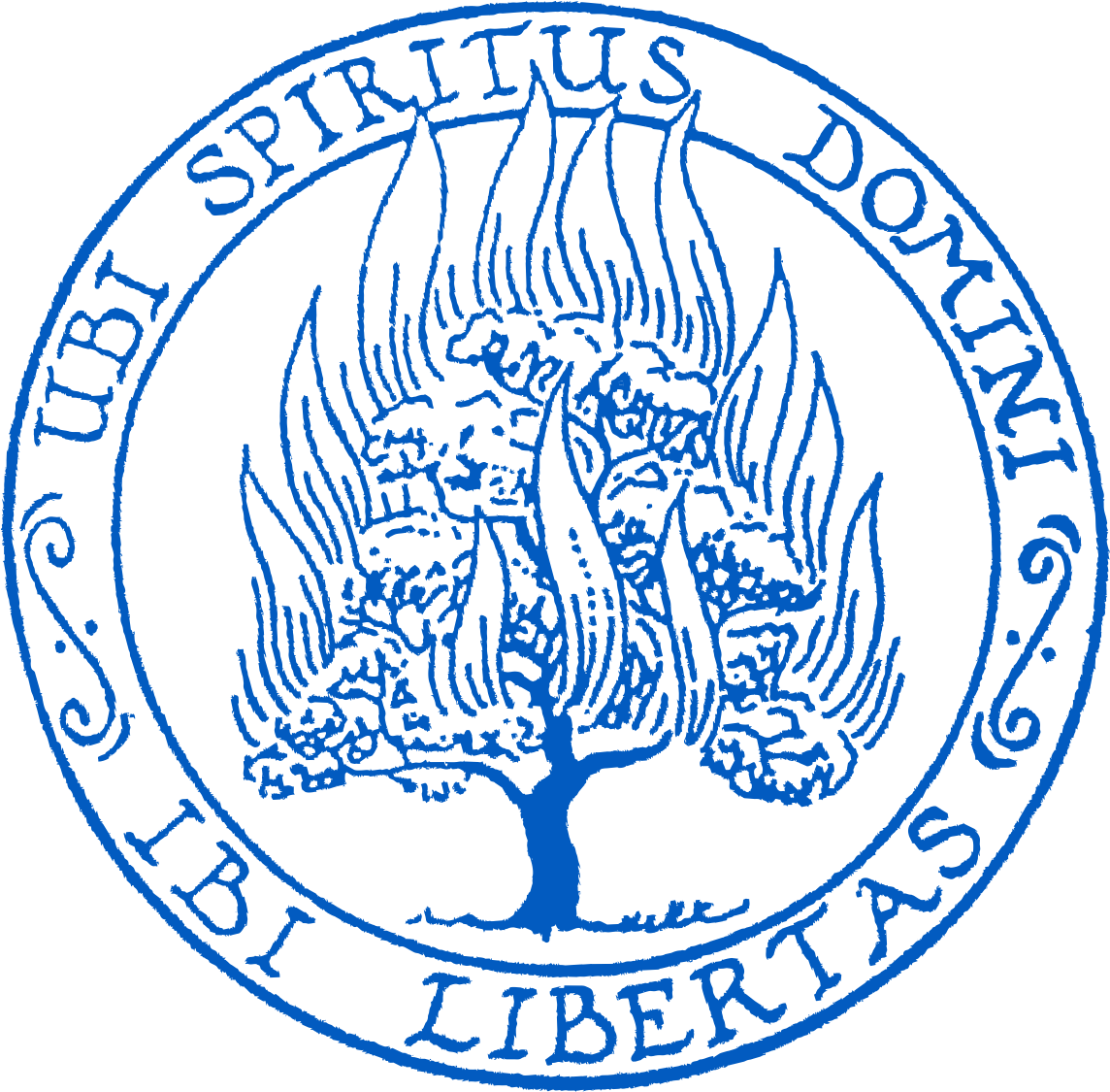Rev. Dr. Linda Ballard
On 9 April 1945, three weeks before the suicide of Adolf Hitler, the pastor and theologian Dietrich Bonhoeffer was executed in Flossenburg concentration camp in Bavaria, Germany. The camp was liberated by American soldiers a fortnight later on April 23rd; but this came too late for Bonhoeffer. Even before Hitler rose to power, Bonhoeffer was outspoken in resisting Nazism. He was a founder member of the Confessing Church, which opposed the attitude generally taken by the church in Germany to the advance of Nazism. He was involved in operations to assist Jews to escape from Germany and in other activities, for which he was arrested in 1943. Bonhoeffer might be described as a pragmatic pacifist, and during 1944, he came under suspicion of involvement in a plot to kill Hitler. It was as a result of this that he was executed. While the resistance group to which he belonged did plot to assassinate Hitler, there is no clear evidence that Bonhoeffer was directly involved in these plans. However, when the plot failed, he was aware of the likelihood of execution and afterwards lived daily under the threat of death. When offered a chance to escape from prison he refused, aware that to attempt an escape might result in reprisals on, and cause suffering for, his family.
The primary reason why I decided to speak about Bonhoeffer today is that yesterday was the seventy first anniversary of his death. When I thought about this, and about Bonhoeffer himself, I realised that there is a way in which he can be connected to this church in Dunmurry. How? Through the beautiful stained glass window, which refers both to the Psalms, and to the Sermon on the Mount. Bonhoeffer is known frequently to have used the Psalms as prayers, and Matthew’s account of the Sermon on the Mount is one of the subjectshe considers in his book, The Cost of Discipleship. Our readings today were of course Psalm 121, and the Beatitudes taken from Matthew’s account of the Sermon on the Mount. Both Psalm 121 and Matthew 5, verse 8, ‘blessed are the pure in heart’, feature on our window. It therefore seemed very appropriate to me to say a little about Bonhoeffer this morning.
In The Cost of Discipleship, Bonhoeffer introduces a concept that he calls ‘costly grace’. This he contrasts with ‘cheap grace’, which we might sum up as a formulaic attitude to Christianity, a Christianity that is not actually lived out. I mean that ‘cheap grace’ might count it as enough simply to go to church and perhaps to observe certain forms of Christian behaviour, without registering or acting upon the need to consider things more deeply. For Bonhoeffer, this concept was developed in circumstances in which the German church was inclined to accept the policies of Nazism, largely because ministers and pastors who spoke out against Nazism were quickly replaced with others who were more ready to accept the regime. Bonhoeffer was a founder member of the Confessing Church, which did not accept the failure of the German church to speak out against Nazism. According to Bonhoeffer, ‘Silence in the face of evil is itself evil: God will not hold us guiltless. Not to speak is to speak. Not to act is to act.’ In other words, if we do not speak out or act against evil, we are effectively condoning it. This opinion of Bonhoeffer’s was deeply rooted in his Christian faith, by which he lived and according to which he died.
Bonhoeffer’s analysis of the Beatitudes begins by asking his readers to picture the scene described by Matthew, as we heard it in our reading. A crowd has gathered round Jesus. The disciples, who until recently would have been part of the crowd, are now separated from it as they have taken up new roles as the followers of Jesus. Bonhoeffer interprets the passage to mean that the Beatitudes refer not to the entire crowd, but to the disciples themselves. According to Bonhoeffer, it is the disciples who are ‘poor in spirit’, mourning, ‘meek’ and hungering and thirsting ‘for righteousness’. However, Bonhoeffer suggests that the Beatitudes may be applied to everyone in the crowd, depending on how each individual member of that crowd reacts to Jesus and to his teaching. By responding to Jesus’ call, the disciples have become poor in every possible way. They are literally poor as they have given up family and possessions, and they rely not on themselves, but entirely on Jesus as their spiritual leader and teacher. Theirs is a secret treasure, revealed in the meaning of the Cross, through which they inherit the Kingdom of God.
Bonhoeffer follows this line of interpretation as he looks at each of the Beatitudes in turn. He understands ‘mourning’ to mean, ‘doing without what the world calls peace and prosperity’. He considers the ‘meek’ to be those who have renounced their rights in order to follow Christ. This is very important, and it is worth spending a minute or two thinking about it. We have seen that Bonhoeffer insists that evil should be resisted, spoken out, and even acted, against. Is this not a contradiction of the idea of meekly accepting whatever may happen? The distinction here is that Bonhoeffer considers that the ‘meek’ are those who have chosen a certain way of life and who may suffer as a result, not those upon whom oppression is forced. The ‘meek’, then, have a responsibility to speak up for others, whatever the consequences may be for themselves. This is not an easy path to follow, but we can surely observe it in action in the life and death of Bonhoeffer himself? According to him, the meek:
Have the Church and its fellowship, its goods, its brothers and sisters, in the midst of persecutions even to the length of the cross. The renewal of the earth begins at Golgotha, where the meek one died…
The example then comes, of course, from Jesus, and the message about inheriting the Kingdom of Heaven is here both reinforced and extended, to show how it applies to those who are meek.
The fourth of the nine Beatitudes speaks about ‘those who hunger and thirst for righteousness’. According to Bonhoeffer, disciples neither expect nor receive praise for their actions, but instead act to seek renewal and forgiveness. As the merciful, they do their best to help the oppressed, without any thought of reward. Through this complete surrender to Jesus, they become ‘the pure in heart’, ready to see God. It is not enough to attempt to live in peace; the disciples must become peacemakers, renouncing violence and self-assertion, suffering to overcome evil with good. The final two Beatitudes state that accepting this way of life, though it may lead to persecution and suffering, is ultimately the pathway to becoming blessed and inheriting the Kingdom of Heaven.
Bonhoeffer asks if a community of the type described in the Beatitudes can actually expect to live on earth, or if it is over idealised. He points out that the last of the Beatitudes is addressed directly to the disciples, who endure all on account of Jesus. The testimony provided by patient endurance of this sort is one which flies in the face of worldly values. It is, as Bonhoeffer points out, the way of the Cross. The Beatitudes express the essence of Christ’s teachings. This essence is also demonstrated in the life and death of Jesus himself.
Of course, we also find this teaching expressed, for example, in the parables, where we are presented with ideas that often seem to run counter to our earthly understanding of the concept of justice. What are we to learn from this, and how might we apply it in our own lives? Does this help at all in understanding, if not answering, those questions we might like to put to God about the justice and fairness of human suffering? These questions are far from easily answered and cannot be addressed in a way that leads either to complaisance or to indifference. The Beatitudes make this perfectly clear. We might turn for help here to an Old Testament example, of Job, who after all his trouble seeks to question God about unfair suffering, and about the justice of permitting the powerful to wrong the weak, or to cause harm to widows and childless, unprotected women. While Job’s story ends with him restored to the comfort of happy and prosperous family life, his questions about parity and justice are never directly answered. Instead, Job himself is asked a series of questions including, ‘Do you know the ordinances of the heavens? Can you establish their rule on the earth?’Like many of the parables of Jesus, these words suggest that the ways of God are not subject to the limitations of human reason. We are turned back to the Beatitudes, and to the picture they present of a way of life that from the point of view of the world is counterintuitive, apparently unfair and perhaps even seems unreasonable.
In my opinion, this is very applicable to the core concept of Non-Subscription, of ‘faith guided by reason and conscience’, and not either ‘reason guided by faith and conscience’, or ‘conscience guided by faith and reason’. While we require both reason and conscience to sift, interpret and act out our faith, it is faith, not these human characteristics of reason or conscience, which comes first. Through faith, the disciples accepted Jesus’ call, and it is faith that is central to the Beatitudes. Jesus points out that following the way of the Beatitudes may lead to, rather than protect from, persecution and suffering. The way of the Beatitudes also leads to the Kingdom of Heaven. Dietrich Bonhoeffer made this clear in his interpretation of the Beatitudes, and applied it in his own life. His example shows that the life of faith is not necessarily a guarantee of safety or comfort in this world, and points us to the message of Jesus. This is not to suggest that suffering is some kind of punishment or retribution demanded by God. It is quite the reverse. In each of the four Gospels, indeed twice in Matthew’s, we are reminded, ‘Those who try to gain their own life will lose it; but those who lose their life for my sake will gain it’. The Beatitudes then challenge us, and tell us about the idea of ‘costly grace’. We may not all be called to sacrifice in the way experienced by Dietrich Bonhoeffer, but every day we do face the challenges of the Beatitudes in living our lives as Christians. God’s grace is feely offered, freely given, and freely available for all. The benefits of accepting this gift are beyond human calculation. This seems to contradict Bonhoeffer’s concept of ‘costly grace’, as how can grace that is feely given come at a cost? Bonhoeffer contrasts the concept of ‘costly grace’ not with grace freely given, but with grace cheaply applied and used. Costly grace is not grace that comes or is offered at a price, but it is grace which, once received, makes us want to give ourselves in some measure of return. I recently heard someone say that when asked if he was a Christian his reply was, ‘No, but I try to be’. It is making that attempt, as the Beatitudes tell us even in the face of suffering, which is the cost of grace. If we really accept the gift of grace, we readily accept with it the urge to change our lives and to try to do our best to live as Christians. Our priorities become the priorities of mourning and meekness, of poorness of spirit, not because these are the negative concepts of this world, but because these give us the map that enables us to find the Kingdom of Heaven. Amen,

